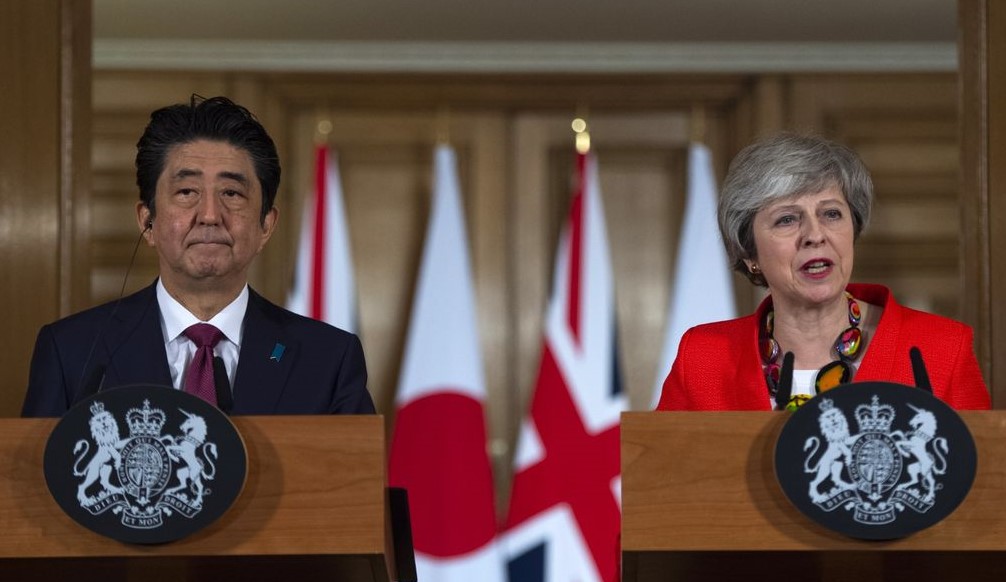Time running out for PM May
January 12, 2019 | Expert Insights

U.K. politicians will resume debating Theresa May’s apparently doomed Brexit deal on Friday, with fresh warnings over what’s at stake ringing in their ears.
Background
On June 23rd, 2016, Britain narrowly voted to leave the European Union, stunning Europe and the world in general. The EU employs a set of policies for its 28-member states that aim to ensure the free movement of people, goods and trade among other services. Britain is deeply intertwined with the workings of the EU especially with regard to trade.
PM Theresa May’s leadership in the negotiations has been heavily criticised. She has been unable to form a consensus within the Parliament, or even her own party, for the course of Brexit. Her “directionless” leadership has not convinced most of her peers in Westminster and she was challenged by a no-confidence motion in early December 2018, which she narrowly won.
Despite her best efforts, the British parliament is not accepting the proposed Brexit agreement. Irrespective of whether they arrive on a deal or not, the UK is officially set to leave in March 2019.
Analysis
After concerns were raised by Japan’s prime minister and the CBI, British Cabinet minister Amber Rudd underlined the damaging impact of leaving the EU in March without a new trade agreement in place, and hinted she could even quit over the issue.
“This is a strong and great country, we will find a way to succeed,” Rudd said. “But I do not think that no deal will be good for this country and I am committed to making sure that we find an alternative.” Rudd declined to answer when asked three times if she’d resign from the government if it pursued a no-deal Brexit. CBI director general Carolyn Fairbairn will make a speech on Friday saying that a no-deal exit risks shrinking U.K. GDP by as much as 8 per cent, and urging politicians to put jobs and the economy first.
The interventions seem unlikely to be enough to help May’s unpopular agreement pass Parliament when it’s put to a vote in the House of Commons on Tuesday. An analysis by the BBC on Thursday suggested May’s deal is on course to suffer the biggest government defeat in the history of the Commons in the vote on Jan 15.
A no-deal Brexit remains the default option if the Parliament doesn’t back May’s agreement on Jan 15, even though a majority of lawmakers supported a motion on Tuesday designed to reduce the chances of Britain tumbling out of the bloc on 29 March. Such a scenario could trigger a recession with the pound falling by as much as 25 per cent, an official analysis suggests.
May held meetings with Japanese Prime Minister Shinzo Abe in London on Thursday. Speaking afterwards, Abe publicly backed May’s Brexit deal and offered his “deepest respect” for the work his British counterpart has done in securing an agreement with the European Union.
“We truly hope that a no-deal Brexit will be avoided and in fact, that is the whole wish of the whole world,” Abe said at a press conference in Downing Street. “There is a good deal on the table and for those who want to avoid no deal, backing the deal is the thing to do,” May said at the press conference.
Counterpoint
However, May isn’t in full control of events. Parliament is flexing its muscle and Cabinet ministers are also starting to raise their head above the parapet. Business Secretary Greg Clark said a no-deal Brexit should be ruled out. “We need to act to avoid a no-deal because I don’t think there is anything remotely like a majority in Parliament that will tolerate this,” he said.
The debate on the deal in Parliament resumes on Friday, with Home Secretary Sajid Javid and Foreign Secretary Jeremy Hunt expected to lead the argument in favour of backing May’s package.
Assessment
Our assessment is that the EU is not willing to renegotiate on the proposed exit deal as EU countries stand to gain from it more than the UK. We believe that PM May is now fighting not only for a fair Brexit deal but also for her own political survival. We also feel that the rising disagreements within the Conservative Party may lead to a new Brexit Referendum, an idea which is supported by most members of the House of Commons.
Read more:








Comments